
- This event has passed.
First meeting of the Philosophy in Biology and Medicine (PhilInBioMed) international network (Bordeaux, France)
22 November 2018 - 23 November 2018
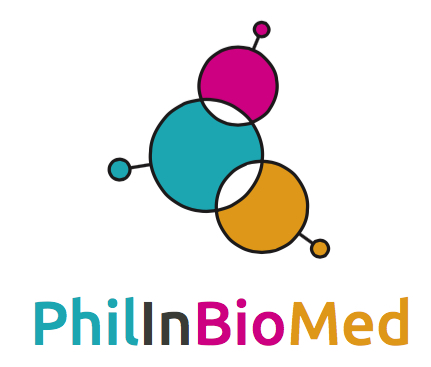
PhilInBioMed is both an interdisciplinary institute located at the University of Bordeaux, France, and a national and international network connecting groups and people working at the interface between philosophy, biology, and medicine, with the shared conviction that conceptual and philosophical approaches can make a critical contribution to science and medicine.
For its first meeting, the international PhilInBioMed network will gather senior and junior researchers working on conceptual issues located at the interface between philosophy, biology, and medicine.
Program First Meeting PhilInBioMed with map
Registration is free, but mandatory: please register here
Plenary speakers:
Hasok Chang (University of Cambridge, UK)
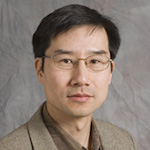
Science needs philosophy — but does it need philosophers?
The “philosophy in science” program promotes more and better philosophical thinking in science, which will facilitate the production of better scientific knowledge. But what exactly is the role of professional philosophers in this enterprise? Isn’t the ideal figure for this purpose the philosophical scientist? If so, the philosopher-in-the-lab is only a stopgap measure, only useful scientists themselves can become more philosophical.
There is a considerable limitation to the viability of philosophy-in-science. I believe that the true role of professional philosophy in society is the promotion of unconstrained thinking. The training of philosophers should be about learning to think cogently while putting fundamental assumptions into question. In contrast, as stressed by Kuhn, scientists are trained to be focused in their thinking in very particular ways. What if our unrestricted philosophical questioning is considered by scientists to be too strange, implausible, radical, disruptive, or useless, to be included in science?
If we restrict our questions and answers to those that current specialist scientists consider legitimate and relevant, we run the risk of giving up lines of inquiry that are truly valuable precisely because they offer something different from what mainstream scientists are already investigating. My conception of history-and-philosophy of science as “complementary science” starts by assuming that there are valuable questions that are kept outside science, sometimes actively and sometimes by simple neglect. Complementary science investigates scientific questions that scientists themselves regard as merely philosophical or historical.
The proposal of philosophy-in-science has challenged my acceptance of the necessity of this complementary stance. I think we can all agree that there is useful philosophical work that can be done both inside and outside the boundaries of normal science. The best way forward is to maintain an active and attentive dialogue across these boundaries, involving both philosophers and scientists, and hybrid scholars as well.
Jane Maienschein (Arizona State University & Marine Biological Laboratory, USA)
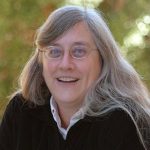
History, Philosophy, and Regeneration Research
Around 1900, studying regeneration in biology meant removing parts of individual whole organisms and then watching them regrow. Sometimes they looked the same afterwards, sometimes the structure changed a little but they seemed to function normally, and other times, they looked completely different and functioned, but maybe in different ways. What was the process of regenerating an individual organism? What was being regenerated?
Thomas Hunt Morgan, Jacques Loeb, Ross Granville Harrison, and others began to ask how they could study regeneration in order to understand normal development. As the twentieth century progressed and two world wars led to many injuries, the search was on to use regeneration biology to develop methods for wound repair. For this purpose, regeneration is equated with restoring function, even if the form looks different. Underlying this work are assumptions about what we mean by “generation” in the first place, and whether the “re-generation” follows the same processes, produces the same structure, and/or restores function. As details change, to what extent is the organism the same individual? What is healthy or injured; what is repair?
In the twenty-first century, regenerative medicine seeks to recover spinal cord function, neural function, and all kinds of damaged function with stem cell or other therapies. What is happening biologically in each case? Then looking at a different level, what about ecosystems? Do they have a healthy form and function as individual wholes that undergo damage, perhaps from climate change, and then restoration? Is this regeneration the same kind of process as with individual organisms? What is an individual ecosystem? And what about microbial communities, whether in the ocean or making up our microbiome: is this an individual living “organism” that undergoes damage or injury and also regeneration to wholeness? Again, do we mean the same thing? This talk will explore the underlying questions and assumptions, asking how philosophical reflection and historical perspective inform and are informed by life science research.
Speakers:
Lucie Laplane (IHPST & Institut Gustave Roussy, France)
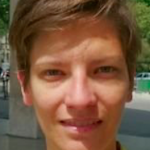
PhiLabo: Should philosopher get involved with experimentation?
If there is no difference of nature between philosophy of/in biology and biology, and if one of the ultimate goals of philosophy in biology is to participate to the production of scientific knowledge, then what is the role of experimentation in philosophy in biology?
Drawing from my own experience, I will describe four benefits that I see in getting involved with experimentation:
- – It provides an intimate knowledge of the object of interest, a knowledge that cannot be acquired by any other mean.
- – It can lead to different questions (e.questions that we did not thought about or did not perceived as important).
- – It can help frame more "appropriate" questions, that is, questions with (a) concrete consequences for science, and (b) that are experimentally addressable. This should help making more effective the contribution of philosophy in biology
- – It can be an effective way to highlight hidden assumptions in philosophy.
These claims open a series of questions. First, what do I mean by "getting involved with experimentation"? There might be different ways of getting involved with experimentation. This talk is based on three types of examples: directly performing experiments, directing experiments performed by others, daily following of experimentations performed in the lab. Each have its own value and pitfalls. Second, what are the drawbacks of getting involved with experiments? There are several risks in getting involved in experimentation, in particular the time it takes that comes at the cost of other activities, the narrowness of the experiments we choose to get involved with, and publication issues. Third, for what kind of philosophy is getting involved with experimentation valuable? I'll discuss how my four arguments differently benefit either philosophy in biology, philosophy of biology, or both.
Tim Lewens (University of Cambridge, UK)
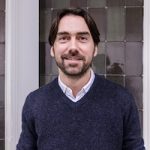
Niche-Construction: A Case of Integrated History and Philosophy in Biological Practice
The lively debate going on among evolutionists regarding the nature and significance of niche-construction is seamlessly scientific, historical and philosophical. Many scientists also consider the debate’s outcome to have significant implications for biological practice. In this talk I assess three claims about niche-construction. The first (from some niche-construction enthusiasts), is that if we are to explain adaptation, we must supplement natural selection with an additional force that runs from organism to environment. The second (from some niche-construction sceptics) is that while selection (and other basic evolutionary processes) have direct impacts on evolution, the influence of niche-construction is only indirect. The third (from the most prominent enthusiasts) is that niche-construction is a fundamental process of evolution that has not been recognised as such. I cast doubt on the first two claims. Regarding the third, I draw on Fisher’s case for runaway sexual selection to point to a pragmatic strategy that can secure niche construction as an important evolutionary process, regardless of whether it is also judged to be ‘fundamental’.
Kate Maccord (Marine Biological Laboratory, USA)
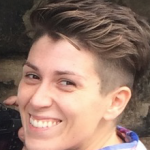
Parsing the Ways in Which Historians, Philosophers, and Life Scientists Investigate Shared Problems
Historians, philosophers, and life scientists all orient their research around problems, which we loosely take to be conceptual anomalies that bear explanation. It is often the case that investigators across these disciplines work on shared problems; we contend that there are three approaches that historians, philosophers, and life scientists take to shared problems. We call these three approaches traditional, additive, and integrative.
During this talk, we explain the semi-permeable boundaries of these three categories and argue that while the traditional approach has been incredibly fruitful, there are alternative ways (i.e. additive and integrative approaches) of working on shared problems across history, philosophy, and the life sciences that will advance the research of participating fields at a greater pace or in different directions that the traditional approach allows. Finally, we highlight some of the barriers that we have run into with the additive and integrative approaches in order to provoke conversations amongst the workshop participants about what, exactly, is necessary and/or sufficient in order to forge productive and innovative relationships between historians, philosophers, and life scientists.
Thomas Pradeu (ImmunoConcept, CNRS & University of Bordeaux, France) &
Maël Lemoine (ImmunoConcept, University of Bordeaux, France)

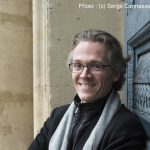
Philosophy in science: Definition and boundaries
Most of philosophy of science constitutes a discourse on science; it takes science as its object of study. Within that approach, most philosophers of science would be happy to influence science, but they certainly not seek to contribute to science. In contrast, a minority of philosophers of science have been part of a trend that we suggest to call “philosophy in science” (PinS) – a form of philosophy whose objective is to advance science, generally by publishing in scientific journals. Focusing on philosophy in biology and medicine, we attempt to characterize how widespread it is, what are its main tools and how it differs from seemingly close approaches.
Jacob Stegenga (University of Cambridge, UK & IDEX Visiting Scholar University of Bordeaux)
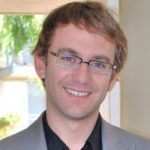
Roundtables:
Serge Ahmed (Institute of Neurodegenerative Diseases of Bordeaux, France)
Andreas Bikfalvi (Angiogenesis and Cancer Microenvironment Laboratory, Bordeaux, France)
Thomas Boraud (CNRS UMR 5293, University of Bordeaux, France)
Cédric Brun (University Bordeaux Montaigne, France)
Marc Daëron (Institut Pasteur, CIML & IHPST, France)
Pierre Domingues dos Santos (University Hospital of Bordeaux, France)
Isabelle Dupin (INSERM, French Institute of Health and Medical Research, France)
Sophie Gerber (UMR Biogeco, INRA, France)
Jan-Pieter Konsman (Aquitaine Institute for Cognitive and Integrative Neuroscience, France)
Clara Besserer (Medical Student, University of Bordeaux, France)
Jean-François Moreau (ImmunoConcept, University of Bordeaux, France)
Thomas Pradeu (ImmunoConcept, CNRS & University of Bordeaux, France)
Rodolphe Thiébault (Bordeaux Population Health, University of Bordeaux, France)
Jonathan Weitzman (Epigenetics & Cell Fate centre, Paris-Diderot University, France)
Call for contributions
The organizing committee welcomes abstracts for 30 minutes’ oral presentations (20 minutes + 10 for discussion) on any subject combining biology, medicine and philosophy, with a strong conceptual dimension. Preference will be given to presentations showing how philosophy can impact science and/or medicine.
Abstracts must be submitted to Lucie Laplane by October 22nd, 2018.
Notifications will be sent on October 31st at the latest.
The submission must contain:
– Names of author(s)
– Institutional affiliations & position
– Title of the talk
– Abstract: no longer than 500 words
Funding
Stipends to attend the meeting will be awarded to up to 10 students or young researchers, based on the quality of the proposal (amount: between €500 and €1,000 each).
Publication
The best contributions will be submitted to a leading journal as a special issue, edited by Lucie Laplane, Maël Lemoine, and Thomas Pradeu.
Scientific committee
Hasok Chang (University of Cambridge, UK)
Marc Daëron (Institut Pasteur, CIML & IHPST)
Lucie Laplane (IHPST & Institut Gustave Roussy, France)
Maël Lemoine (ImmunoConcept, University of Bordeaux, France)
Tim Lewens (University of Cambridge, UK)
Kate Maccord (Marine Biological Laboratory, USA)
Jane Maienschein (Arizona State University & Marine Biological Laboratory, USA)
Jean-François Moreau (ImmunoConcept, University of Bordeaux, France)
Anya Plutynski (Department of Philosophy, Washington University in St. Louis, USA)
Thomas Pradeu (ImmunoConcept, CNRS & University of Bordeaux, France)
Organizing committee
- Wiebke Bretting (CNRS, Bordeaux, France)
- Lucie Laplane (IHPST & Institut Gustave Roussy, France)
- Maël Lemoine (University of Bordeaux, France)
- Thomas Pradeu (CNRS & University of Bordeaux, France)
Registration and cost
Attendance to the meeting is free. Registration is mandatory: plese register here
Lunches and coffee breaks will be covered. The conference dinner will also be covered for all speakers.
More on the PhilInBioMed international network
The groups that constitute the PhilInBioMed international network are: ImmunoConcept in Bordeaux, France; Arizona State University; the History and Philosophy of Science Project at the Marine Biological Laboratory in Woods Hole; the Theory and Method in Biosciences group at the University of Sydney; Egenis at the University of Exeter; the Department of History and Philosophy of Science at the University of Cambridge; the IAS Research Centre for Life, Mind and Society at the University of San Sebastian; the Konrad Lorenz Institute; and the Philosophy of Biology Group at the Department of Philosophy, University of Utah.
